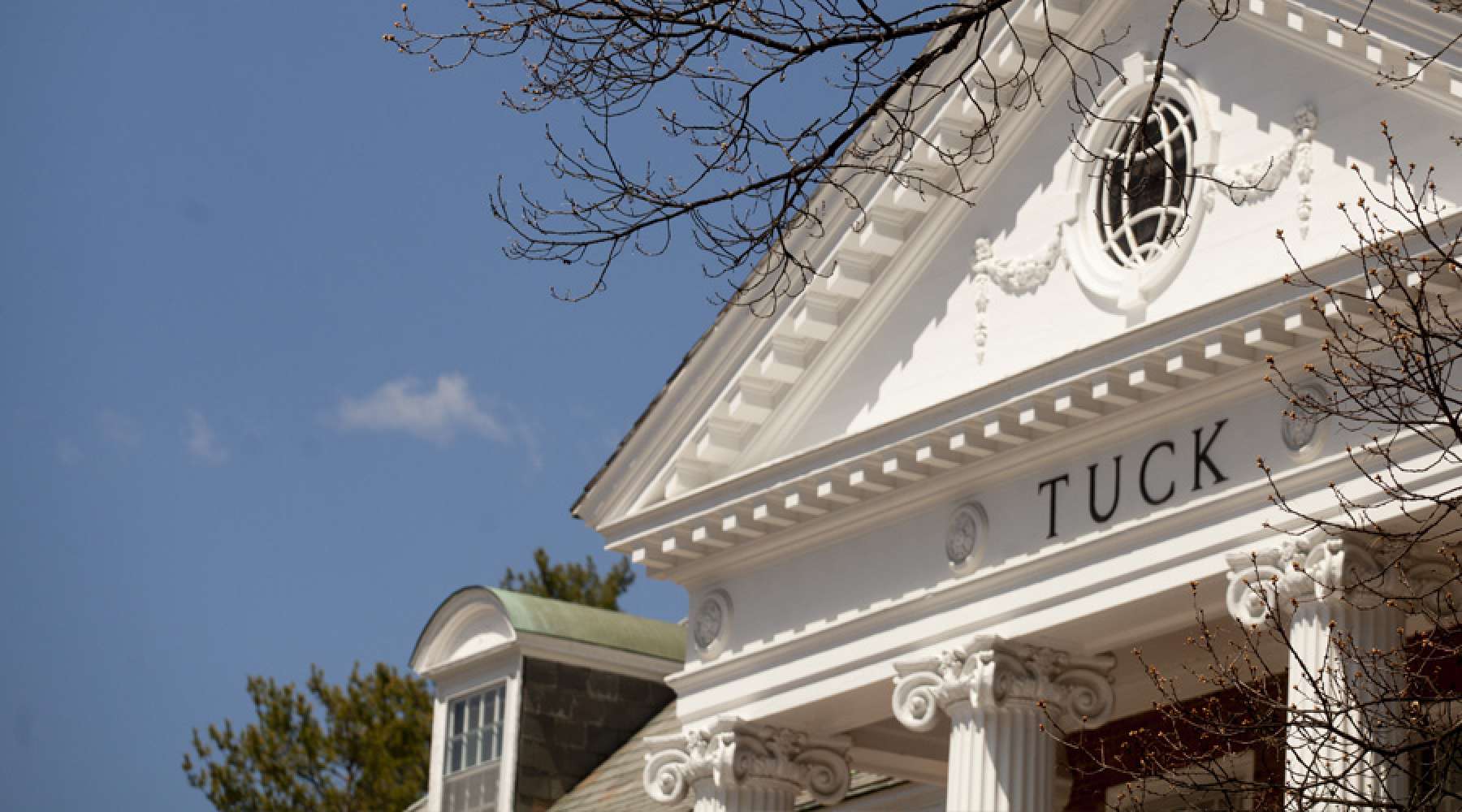

After completing two years at Tuck, I realized my education was a laboratory to test out multiple self-constructed hypotheses, such as beliefs and notions about my own predilections and abilities. I am going to elucidate the avenues business school provided to test my hypotheses. Needless to say, this is based on my experience only.
The five core avenues Tuck provided to test my hypotheses were the job interview preparation, experiential learning opportunities, conversations with my classmates, academic courses, and the summer internship.
Interview Preparation
In my opinion, the most under-valued experience at business school is the job interview preparation. Upon building the target set of companies, interview preparations involve two broad steps. First, is getting an interview invite and, second, is preparing for the interview itself.
Irrespective of the industry you are aiming for, getting an interview will involve networking. I firmly believe that the networking process is a strong indicator of whether you are the right ‘fit’ for the industry and the company. I am of the opinion that you don’t always need to do things that come organically to you, however, gauging the lack of natural fit was important for molding my projection. During the networking process, my writing skills improved, and I gained the confidence to reach out to anyone. I was surprised by how many accomplished C-suite level managers opened up their calendars for me. Interestingly, the networking process didn’t just open up professional doors, it helped me gain insight into the process by which people make a decision. It is not often that you’d hear the director of a large-scale global tech company share why she decided to join a start-up after school and how that role was pure serendipity. Viewing networking as a way to explore what I can achieve with my MBA degree, determination, and ability have helped me enjoy this once alien process.
The second step of interviewing is the preparation that shifts depending on the industry. Case Prep is the most common methodology and it is a great way of learning how to not boil the ocean to solve a problem. I believe the innumerable times I have reminded myself to focus on the goal of the case has instilled in me the habit of asking that same question for most other activities.
I personally enjoyed working on an assignment by Duolingo in preparation for their product manager role. For an individual who hasn’t worked on a tech product, recommending a product feature (with user stories, wireframes, specifications, edge-cases, feature conflicts, A/B testing) was the most exciting learning experience. I didn’t get the job, but I took back so much about the function and the product in just two weeks. Similarly, while preparing a deliverable for a fin-tech company during the interview process, I learned about the what, how and why of a credit score, the credit reporting platforms, and that I, as an education sector professional, should not write myself off from any sector.
I sincerely urge the incoming students to view the interview process as an opportunity to test a hypothesis, rather than a burdensome process that needs to ‘get done.’
Experiential Learning Opportunities
This broad term encompasses offerings such as Tuck’s OnSite Global Consulting course, venture incubators, fellowships, and more. I personally leveraged the consulting projects, with companies inside and outside America, and learned a ton about what excites me. For my consulting project with a clothing brand client, I learned that I absolutely wouldn’t be energized as a leader in the clothing retail industry. While conducting a competitive analysis, I realized that there is little to no difference between the clothing brands in their pull and push strategy, product, and pricing. This leads to the industry being fragmented with no real barrier to entry.
Additionally, I also had the opportunity to travel to Honduras to ascertain whether Pap smear testing can be adopted by the textile industry for their women employees. In this case, even though I didn’t know anything about the health sector, I learned that I can be curious if I find the project having a positive societal impact. Voila!
Even though I don’t have a strong impact to boast about from these short-term projects, I believe these experiences have helped me ascertain the different pieces of my professional work that could excite me.
Conversations with Classmates
Another obvious and quick way to eliminate a few hypotheses is by having conversations with your classmates who have prior work experience in the industries of interest. Personally, I believe this requires the most effort as you’d need to have a good sample size of 30-min conversations to derive an understanding of your fit.
Academic Courses
The only thing I’d like to point out here is that picking courses drastically outside my area of interest helped me explore topics I wouldn’t have personally spent time on. The most significant one was a course with a venture capital partner that made us go through multiple due diligence interviews, partner meetings, investment memos, term sheets, and cap tables. While conducting due diligence with entrepreneurs, I realized that I was yearning to be on the other side of the table. One day, I really hope to own an idea, share my motivation, and take pride in my team and the progress we’ve achieved together rather than creating an impact through investing.
Summer Internship
I am extremely glad to have had the opportunity of working in a public technology company after coming from a non-tech, five-member start-up team. I personally accepted the hypothesis that I’d enjoy working in the tech industry without a technical background and also learned that I’d rather get into the weeds of building something than play with words to market it.
As I write this, I am unsure how my next six months are going to shape out. However, I am almost certain that my life is only going to move forward with the plethora of hypotheses Tuck has helped me explore.